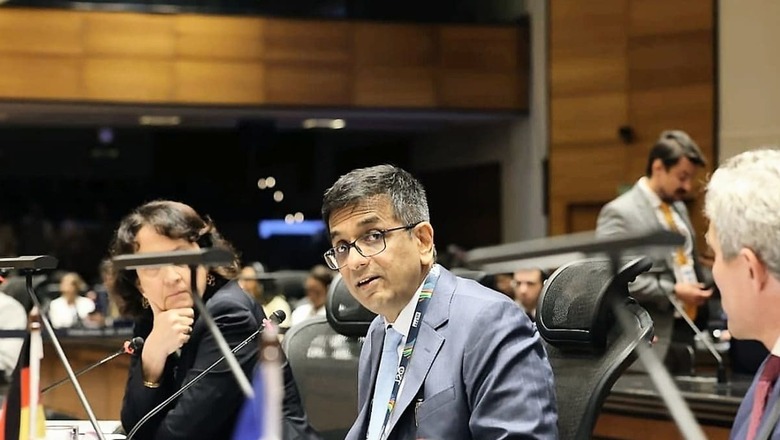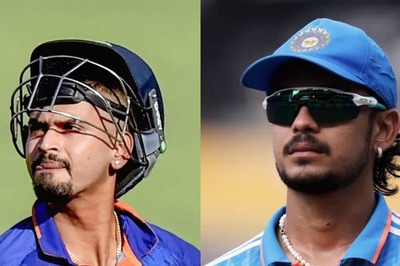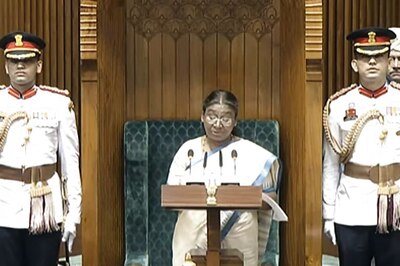
views
Our courts have come to be reimagined not as imposing ‘empires’, but as democratic spaces of discourse, said Chief Justice of India (CJI) D Y Chandrachud on Tuesday.
Addressing at the J20 summit in Rio, the CJI said COVID-19 pushed the frontiers of our court systems- which were compelled to change overnight. Courts became more than just opaque physical spaces, he added.
Speaking about the challenges of the new age judiciary, the CJI pointed out that Digital divide, representational asymmetry between parties to the same dispute, and low-connectivity locations are some problems that need to be looked into and tackled. “The potential of technology lies in how we convert it to minimise pre-existing inequalities,” he said.
The CJI added, “Inequalities are not neatly stacked compartments; they are rather a complex web of interwoven realities. Technology is not a one-stop panacea for all social inequalities.”
Hinting at the problems with emerging technology, CJI Chandrachud pointed out complicated issues such as AI-profiling and consequent stigmatisation of individuals in large language models, algorithmic bias, misinformation, exposure of sensitive information, and opacity of black box models in AI must be tackled with sustained deliberative efforts and engagement about the dangers.
Elaborating the Indian judicial model to the world representatives at the summit, the CJI pointed out that the Indian Supreme Court’s Case Management System has been developed on Free and Open Source Software (FOSS), and is the largest case management system in the world.
“FOSS helps us cut costs significantly, and provides greater transparency, as opposed to proprietary or closed source software. It bridges an important communication gap,” he said.
The CJI further elaborated that it helps and allows litigants to keep a daily check on case status- it sends automated emails to litigants with case details, hearing dates, judgments and orders. We also have offline e-kiosks which assist litigants navigate the systems and supply case status information, he said.
In the context of Brazil’s presidency of the G20 in 2024, the Brazilian Federal Supreme Court hosted the J20 – Summit of Heads of Supreme Courts and Constitutional Courts of G20 members.
The J20 aims to foster the exchange of ideas and initiatives concerning legal topics of relevance in our contemporary landscape, thereby establishing a global forum for constitutional jurisdiction bodies. Additionally, it strives to promote multilateral and bilateral cooperation projects.
Explore in-depth coverage of Lok Sabha Election 2024 Schedule, Voter Turnout, Upcoming Phase And Much More At News18 Website




















Comments
0 comment